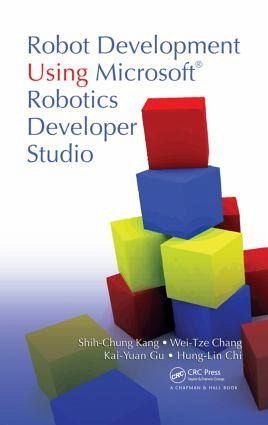Nicht lieferbar

Robot Development Using Microsoft Robotics Developer Studio
Versandkostenfrei!
Nicht lieferbar
Weitere Ausgaben:
The Microsoft® Robotics Developer Studio (MSRDS) and LEGO® robots together offer a flexible platform for creating robotic systems. This book provides clear instructions on developing and operating robots. It includes an extensive array of examples and corresponding step-by-step tutorials, with MSRDS codes on a companion website. The top-down approach used in the text helps readers think of a robot as a system rather than an assemblage of parts. Readers gain an understanding of methods for integration, design trade-offs, and teamwork-all essential skills for building robots.




